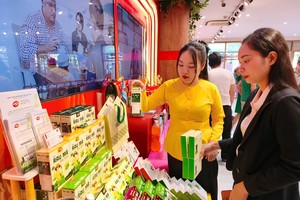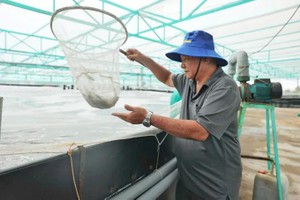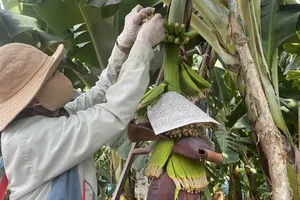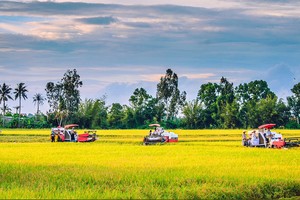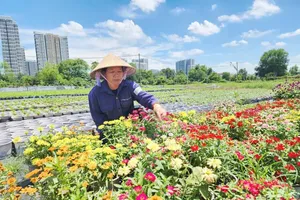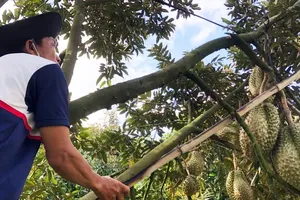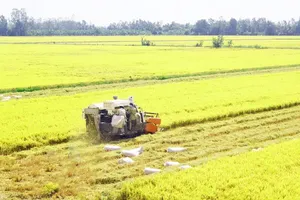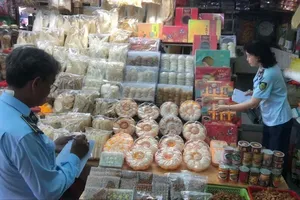Vietnam has become the world’s largest cashew nut exporter and processes both domestic and imported nuts from foreign countries. However, local cultivation areas are paradoxically decreasing sharply, said Dr. Hoang Quoc Tuan from the Sub - National Institute of Agricultural Planning and Project on March 20.
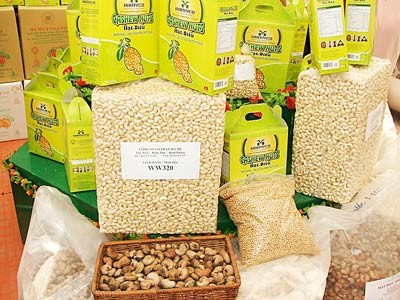
Vietnam processes and exports a variety of cashews to countries around the world, however, domestic cashew-growing areas have recently been on the decline. (Photo:SGGP)
The country mostly exports raw materials such as coffee, pepper and rubber. However, the local cashew industry is different in that it imports materials from foreign countries to process the nuts before exporting them.
It imports around 40 percent of such processing materials from Africa and India.
Countries like India and Brazil grow vast amounts of cashews, far more than Vietnam, yet Vietnam outperforms both countries in terms of the amount of nuts it processes.
Binh Phuoc Province in particular is known for processing high-quality cashew products. The province also has the largest cultivated cashew areas in the country.
Developments in processing technology have helped Vietnam become the largest cashew
exporter in the world since 2006. The country now processes around one million tons of cashews annually, second only to Tanzania and Mozambique.
The main importers of Vietnam’s cashews include the US, China, Australia, the Netherlands and Thailand. The country thus plays a key role in the global cashew market.
Cashew cultivation areas on the decline
Despite Vietnam’s high productivity in terms of cashew processing and exporting, in recent years the country’s nut-growing areas have decreased sharply.
In 2006, cashews were cultivated on 444,200 hectares. Today, however, the nuts are grown on less than 393,000 hectares.
It is forecast that cashew-growing areas will decline to 350,000 hectares in the near future.
Cashew productivity in Vietnam was once around one ton per hectare, double the average productivity of other countries. Today, however, it achieves less than 0.86 tons per hectare.
Cashew-growing areas are being replaced by other crops such as manioc, rubber trees, and coffee, as more money can be made from cultivating these.
In addition, experts say the amount of cashews being exported rather than consumed domestically is too high, at around 90 percent.
When world prices fluctuate, this could have a negative impact on local farmers.
Experts say that cashew farmers should change to a new seed variety and combine planting with other trees to increase their income.
Deputy Chairman of the Binh Phuoc Province People’s Committee Bui Van Thach said the Government should support the nation’s cashew growers and help them boost production.
Initially, cashew farmers would be granted access to subsidized loans to invest in developing their infrastructure to improve product quality and increase their competitiveness.
Foreign experts have said that farmers do not stand to gain as much as producers and middlemen, which does not encourage farmers to continue expanding cultivation.
The Government should also increase its investment in cashew research and agricultural promotion programs while protecting farmers’ rights and income, experts said.
Binh Phuoc Province recently launched the Golden Cashew Festival to honor cashew farmers and promote the Vietnamese cashew industry.

